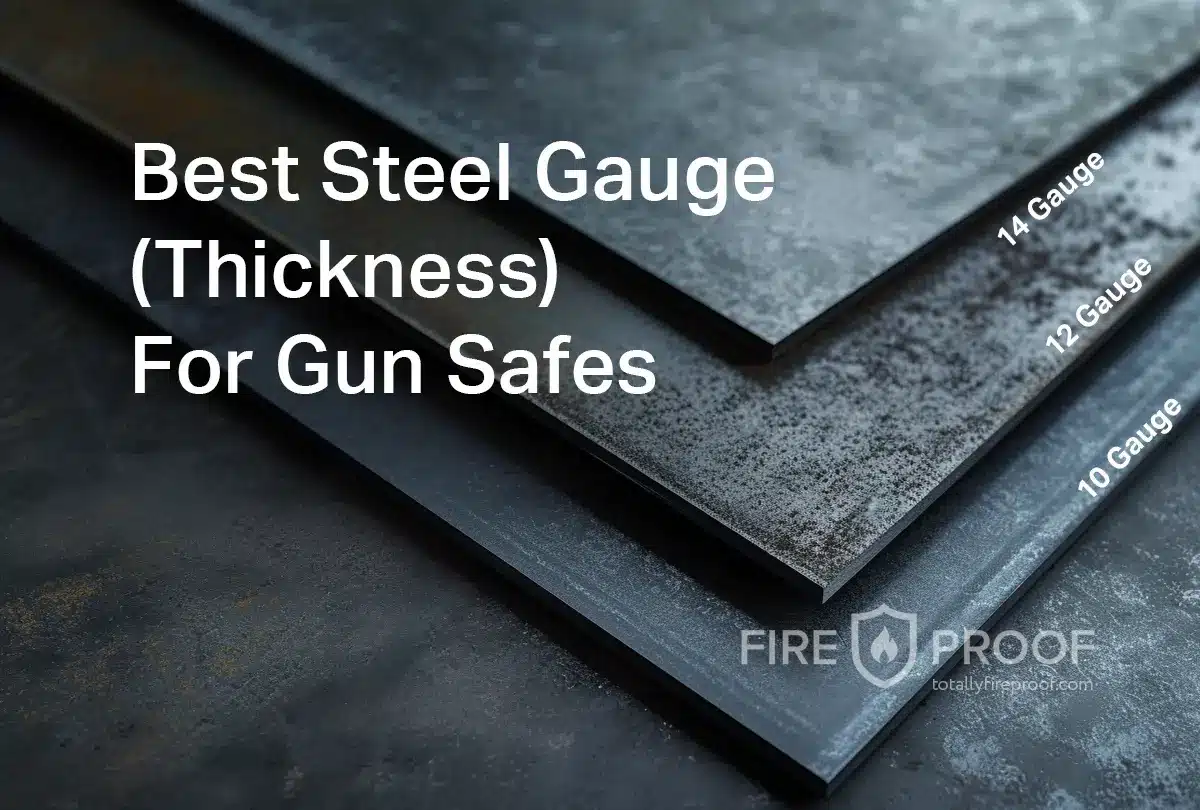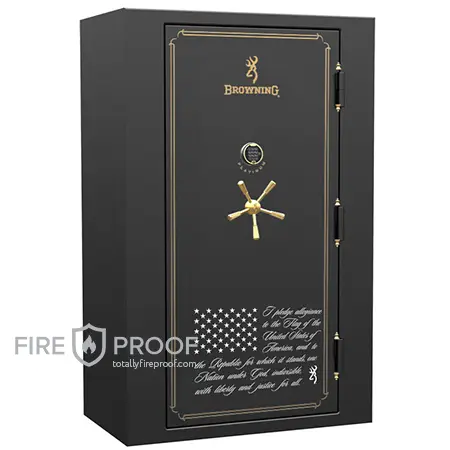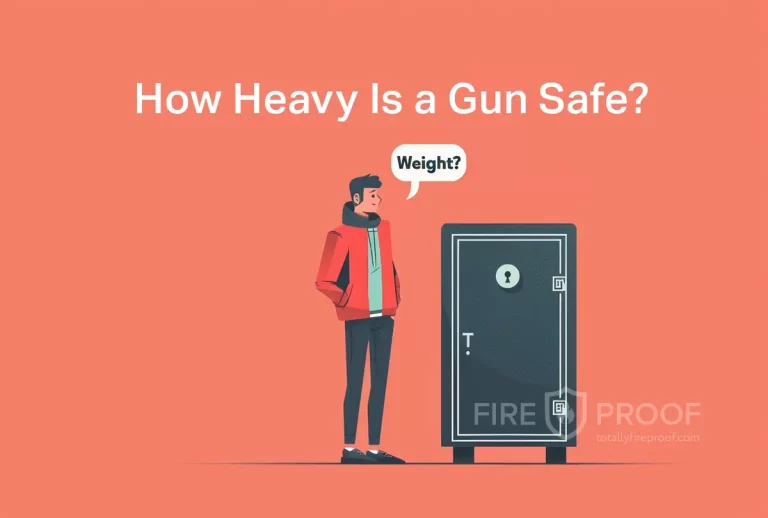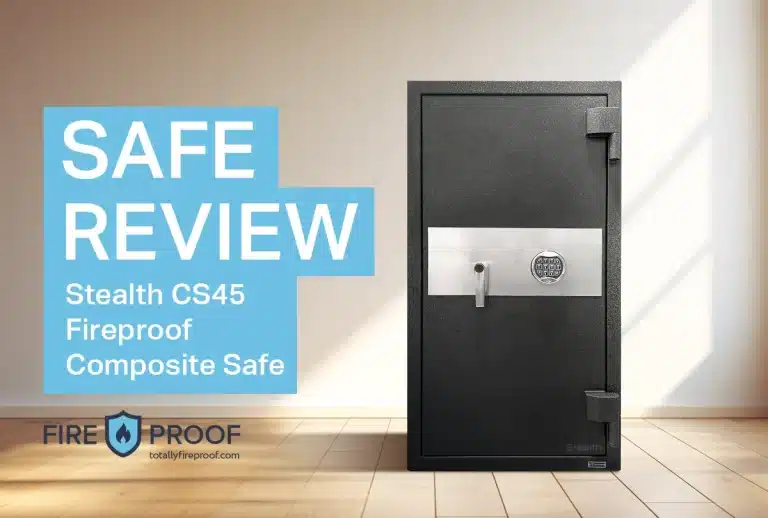Best Steel Gauge (Thickness) For Gun Safes
The thickness of your gun safe’s walls and door is one of the main factors that determines how secure and reliable it is. There are plenty of inexpensive 18 gauge safes, but there are also some high priced 7 gauge models. Of course the thicker the better. But those cost a lot, you might ask. So what is the best steel gauge for gun safes? If you are looking for the ideal balance between the price and security:
The ideal steel gauge for gun safes, offering a balance of security and durability, is between 10 and 12. It is plenty enough in terms of protection, affordability, and practicality
Curious about what exactly steel gauge means in the context of safes? Our guide breaks down everything you need to know, from understanding the gauge system to how metal thickness impacts safe quality, helping you choose the best gauge for your needs.
Understanding Steel Gauge / Steel Thickness
Steel Gauge is a measurement of the thickness of steel material. It is a crucial factor in various applications, including the manufacturing of gun safes, as it directly influences the strength and security of the safe.
The term “gauge” might seem a bit confusing because it operates on a counterintuitive scale: the lower the gauge number, the thicker the steel. This means that a 12-gauge steel is thicker and stronger than a 16-gauge steel.
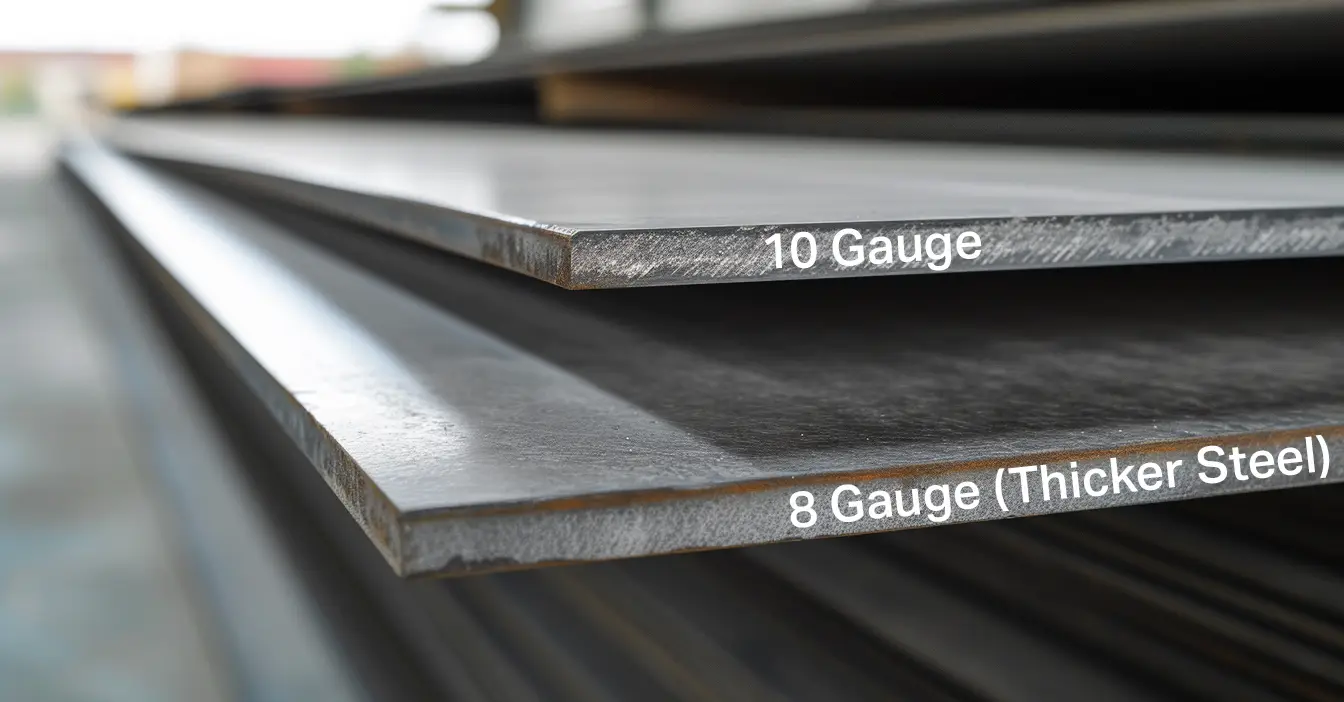
To provide a clearer understanding, let’s look at a table illustrating different steel gauges and their corresponding thicknesses in both inches and millimeters. This table shows how gauge translates to actual measurements in inches and millimeters.

Why Steel Thickness Is Important In A Gun Safe
Steel thickness plays a key role in the effectiveness and reliability of a gun safe. It’s not just a matter of construction material; the gauge of steel used in a safe’s design directly impacts its overall security, resistance to external damage, and even its fire protection capabilities. Here’s why steel gauge matters.
How Gauge influences Strength and Security
The primary function of a gun safe is to keep firearms out of the wrong hands, whether that’s burglars, children, or anyone else who shouldn’t have access. A thicker steel gauge provides increased resistance to tampering and forced entry. It can better withstand attempts at cutting, drilling, or prying, ensuring that the safe remains a durable barrier against unauthorized access.
Thicker steel not only offers more resistance to physical attacks but also contributes to the safe’s structural integrity over time. Natural disasters, emergencies, accidents and other physical possible events are less likely to damage a gun safe with lower gauge.
Higher gauge (thinner steel) on the other hand is easier to drill through or deform for a determined thief.
How Gauge Influences Fire Protection
In addition to security against theft, many gun owners are concerned with protecting their firearms and valuables from fire damage. The thickness of the steel can have a considerable impact on a safe’s ability to withstand high temperatures.
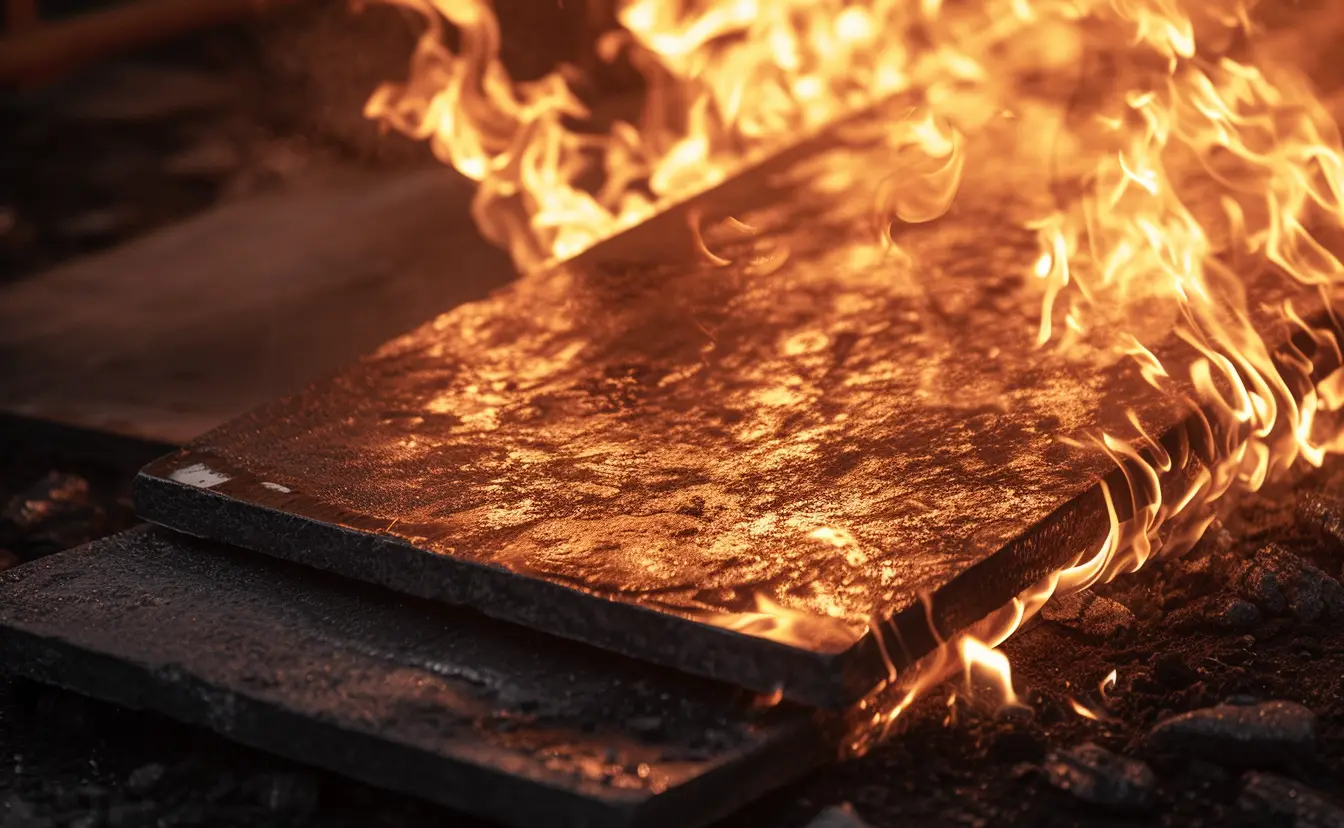
Thicker steel provides better insulation against heat, slowing down the transfer of extreme temperatures to the safe’s interior. This means that in the event of a fire, a safe with a lower gauge steel can protect its contents for a longer duration, potentially saving valuable items and irreplaceable firearms from heat damage.
Selecting the Right Steel Gauge for Your Gun Safe
When it comes to choosing the perfect gun safe, understanding the role of steel gauge is important, but it’s just one piece of the puzzle. The “best” steel thickness for a gun safe depends on a mix of factors including your security needs, the safe’s intended use, and, of course, budget considerations. Here’s how to navigate these considerations to select the right steel gauge for your gun safe.
What Steel Gauge / Thickness is Best for a Gun Safe?
Ideally, a gun safe should be made of steel thick enough to offer robust protection against forced entry and fire. Yet it should not be so heavy that it becomes impractical for your space or too costly. Generally, safes with a steel gauge of 10 to 12 are optimal. They offer a good balance of security and affordability for residential use. 12 gauge (and lower gauge numbers) safes provide sufficient resistance to breaking and entering attempts while also being manageable in terms of weight and cost.
If the price is not a factor, you can choose the thickest steel possible. For example there are models with 7 ga metal body on the market, like Browning PP49T Gun safe. Check it out here:
Other Factors to Consider
- Safe Size and Weight Capacity: Larger safes, intended to hold multiple firearms or valuables, benefit from thicker steel to support the weight and enhance security. However, for smaller safes intended for a handgun or two, a slightly higher gauge steel might be acceptable.
- Intended Use: If the primary concern is burglary, opt for a lower gauge (thicker) steel. If the safe is more about keeping firearms away from children, a higher gauge (thinner) steel may suffice.
- Location and Mobility: If you plan to move the safe occasionally, consider the balance between thickness and the total weight of the safe. Heavier safes are more secure but can be a challenge to relocate.
Balancing Security Needs with Budget
While thicker steel (lower gauge numbers) offers better security and fire protection, it also means a more expensive safe. Balance your security needs with what you’re willing (and able) to spend. If you don’t have an expensive guns collection, you might want to choose a cheaper safe.
But if your main goal is to keep your weapons secured, then investing in a safe and spending a bit more upfront for a thicker gauge steel can provide a needed peace of mid. Plus it can save you from potential losses in the future, especially when you add more items in the safe.
Addressing Common Questions
1. What gauge steel is used for safes?
Most residential gun safes are constructed with steel ranging from 10 to 18 gauge. Lower numbers mean thicker steel, with 10 gauge being common for higher security safes.
2. What is the best steel for a safe?
The “best” steel depends on your specific needs. For high security, lower gauge steel (thicker, such as 10 gauge and less) is preferable. For general use, a balance between thickness, weight, and cost is often found in 12 to 14 gauge steels.
3. Is 12 gauge steel good for a safe?
Yes, 12 gauge steel offers a good balance of protection and affordability for most homeowners. It’s thick enough to deter casual break-in attempts while not being overly heavy or expensive.
4. Is 16 gauge steel good for a safe?
16 gauge steel can be adequate for basic security needs and to prevent access by children or casual intruders. However, it might not offer sufficient protection against determined burglars equipped with tools.
5. What is the minimum Gauge Steel needed for gun safes?
For adequate security against break-ins, a minimum of 12 gauge steel is recommended. Safes with steel thicker than 12 gauge provide even greater security and resistance to tampering.
Conclusion
To summarize, the right steel gauge for your gun safe is usually between 10 and 12. Such thickness balances security, cost, and practical use. If you want your safe to have a better anti-theft and fireproof capabilities, choose the model that uses a lower gauge steel. Especially if the price and the weight of the safe are not cornerstone for you.

